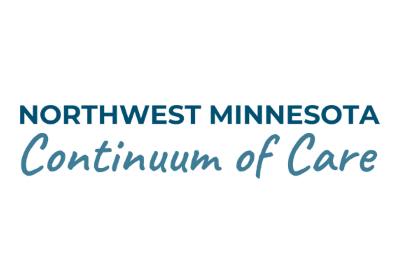This article is included in our FY24 Impact Report, which can be viewed in its entirety HERE.
Our work toward ending homelessness in Northwest Minnesota, specifically for youth and young adults under the age of 25, is rooted in systems-level change.
Specifically, our staff, working through the Northwest Minnesota Continuum of Care and alongside its Racial Equity Accountability Project team, are focused on addressing the racial disparities persistent in our region’s coordinated entry system, which connects those living through homelessness with the necessary supports and interventions.
Historically, the region’s coordinated entry system utilized a specific index tool that assessed the needs of people seeking housing, prioritizing resources to those with the greatest vulnerability. However, in examining the results of this system, it became clear that this prioritization tool is not sufficient for meeting the needs of our region’s populations.

“The NWCoC identified systemic issues that had negative impacts on historically marginalized communities, resulting in bias in the prioritization process and thus not serving people in an equitable manner,” NMF program officers reported.
In 2021, the NWCoC changed its entry process to shift away from a person’s deficits and instead toward a person-centered, strength-based approach.
Meanwhile, as the REAP team was formed and dug in to accomplish its work, it prioritized the need to hear directly from those affected by the coordinated entry system. Hosting several talking circles in Indigenous communities to hear first-hand accounts of those with lived experience of homelessness, it became clear that the old approach – the prioritization of resources based on need – was re-traumatizing.
As on participant said: “The whole process needs to improve. The feelings of shame I felt was often a result of county workers or even tribal workers looking at me like another ‘poor Indian’ just asking for free handouts. That right there pushed me away from asking for help and seeking resources.”
The new strength-based approach has been developed to focus not on an individual’s faults but on their strengths and goals. This better equips case managers and direct service managers to determine their specific barriers to housing.
“This has not been a simple shift, but in utilizing the voices of those with lived expertise it allowed for a non-traumatizing approach,” NMF program officers reported.
The NWCoC will continue to monitor, review, and evaluate the results and data, understanding that the process will need to continually change and adapt to be ultimately successful in its goal of making homelessness rare, brief, and non-recurring.






